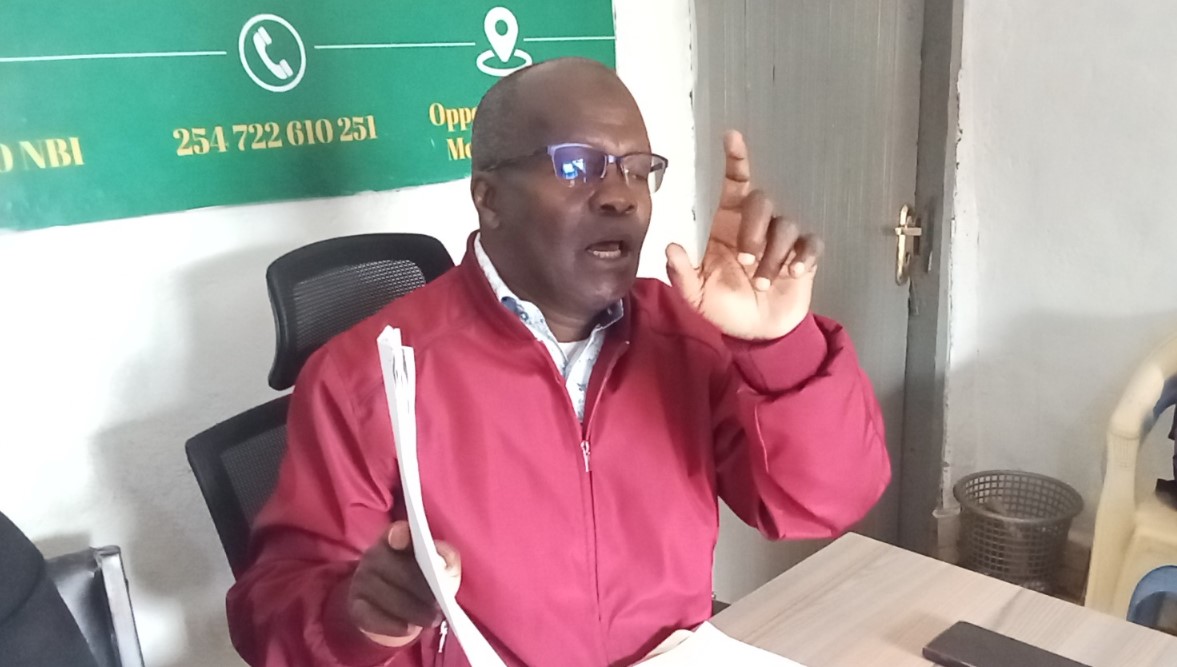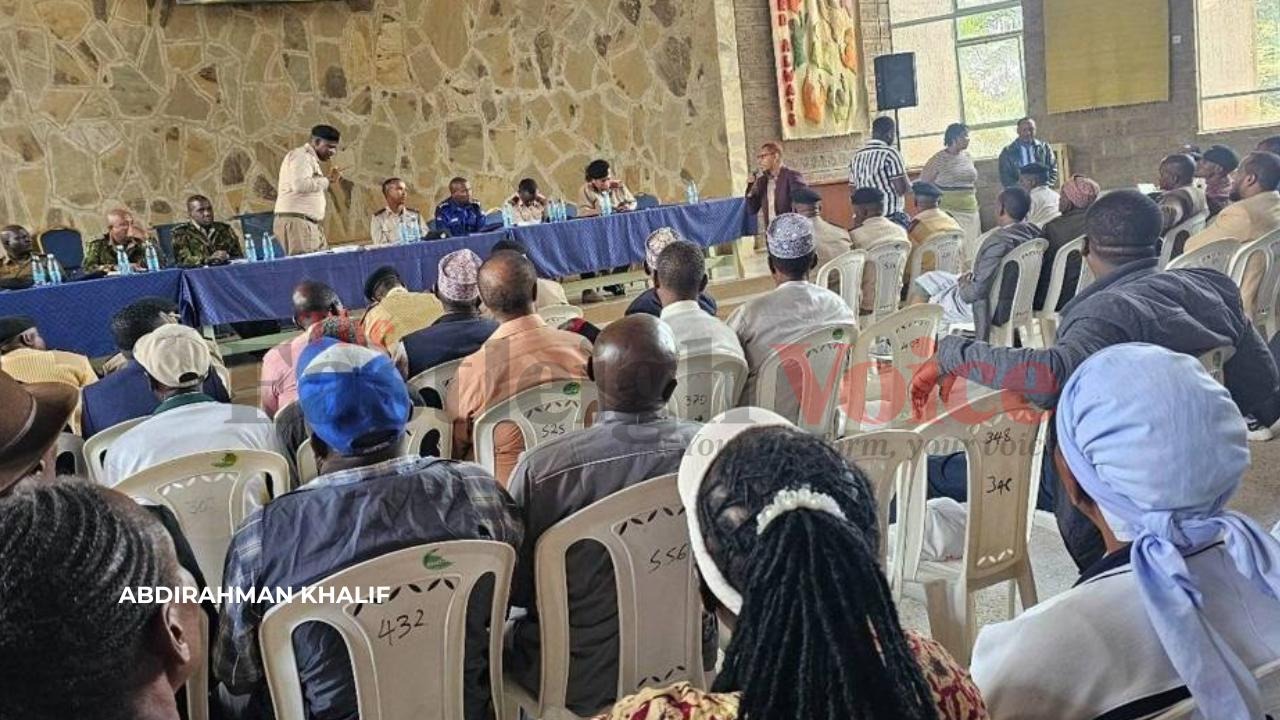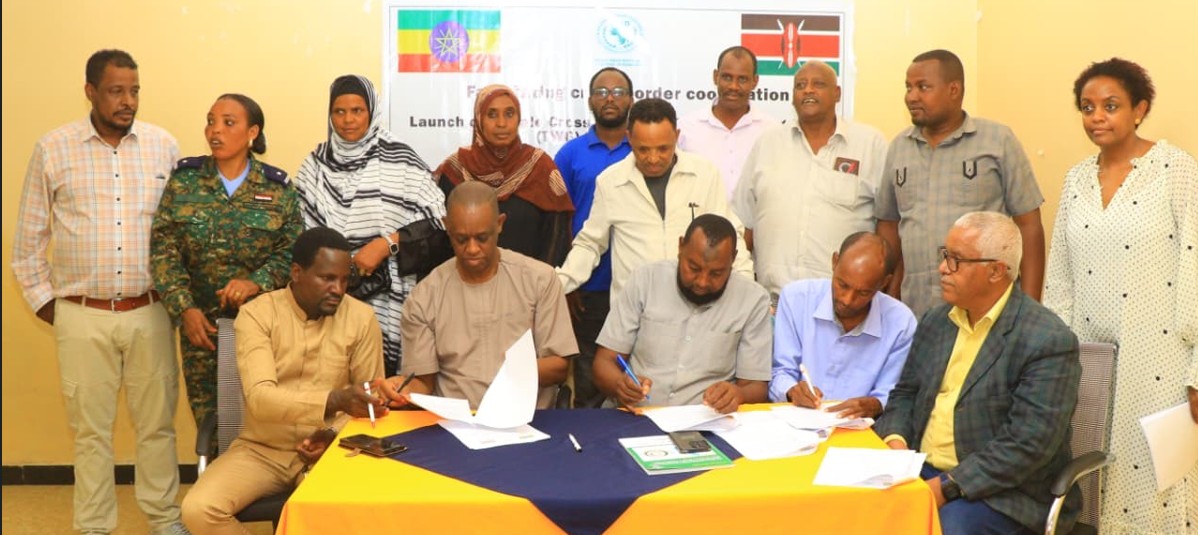Nubian Community faults Murkomen over statement on Nubians' citizenship

The lobby group has called on the government to stop issuing assurances that are not backed by action. It urged Murkomen to direct state registration offices to facilitate the smooth registration of members of the Nubian community.
A human rights lobby group, the Nubian Rights Forum, on Thursday refuted statements made by Interior Cabinet Secretary Kipchumba Murkomen regarding the government’s recognition and registration of members of the Nubian community as citizens of Kenya, terming the remarks misleading and inaccurate.
Nubian Rights Forum Executive Director, Shaffie Hussein, told The Eastleigh Voice that Murkomen’s assurances amounted to yet another in a series of false promises made by senior government officials, while the reality facing the community remains one of exclusion, discrimination, and the anguish of feeling like stateless Kenyans.
More To Read
- Nubians recognised as Kenyan ethnic group since 1978, says CS Murkomen
- Rights groups slam new ID rules, say they discriminate against Muslims and minorities
- Lobby championing rights of Nubians hope new Interior chief will solve their woes
- Kibera lobby calls for action on ethnic discrimination report at Kajiado school
- State must prevent discriminatory vetting in new ID issuance rules - rights groups
- Nubian Rights Forum opposes higher fees for national identity documents
“What we heard Murkomen saying is not new. In fact, other top government officials have made similar claims. Our community members continue to be treated as second-class citizens when applying for national identity cards,” said Shaffie.
On Wednesday, Murkomen confirmed that the Nubian community is legally recognised as a Kenyan ethnic group under national law.
Responding to a question by Nairobi Senator Edwin Sifuna on whether there were plans to issue a citizenship code formally recognising the Nubian community, Murkomen stated that the government, through the Directorate of National Registration Bureau (NRB), had already assigned the community its own ethnic code.
He noted that members of the Nubian community have been registered and issued with national identity documents since the introduction of the first-generation ID card in 1978.
According to Shaffie, discrimination against members of the Nubian community has continued unabated despite numerous appeals to past administrations and to President William Ruto’s government. He cited the community’s inability to secure government employment as one of the consequences of this ongoing marginalisation.
“While other Kenyans benefit from police and military recruitment, our members rarely get such opportunities because many of them lack identification documents. This year, only one person from the community was recruited into the military,” said Shaffie.
According to Murkomen, the National Registration Bureau assigns unique ethnic identification codes to Kenyan communities. These codes allow individuals to declare their ethnicity when applying for national identity documents, as required under Section 5(1)(d) of the Registration of Persons Act.
“In 1995, with the introduction of the second-generation ID and the automated Kenya Identity Management System (KIDMS), it became necessary to create specific ethnic codes to capture ethnic data electronically. Each ethnic community was assigned a unique code, while a generic code, ‘Other Kenyans’ (Code 81), was provided for individuals whose communities were not yet listed in the system. The Nubian community was initially registered under this generic code (81 – Other Kenyans),” the Cabinet Secretary explained.
He added that no member of the Nubian community had ever been denied registration due to the absence of a communal code, noting that the issuance of ethnic codes was a continuous and progressive process.
The lobby group has called on the government to stop issuing assurances that are not backed by action. It urged Murkomen to direct state registration offices to facilitate the smooth registration of members of the Nubian community.
“If Murkomen is true to his word, then we want to see him issue a directive to all officers under his ministry to facilitate the smooth registration of Nubians as Kenyans. Otherwise, his assurances will amount to a public relations exercise,” added Shaffie.
Murkomen further denied knowledge of any current barriers faced by Nubians in obtaining national identity documents, citing recent reforms that eliminated additional vetting requirements previously applied to certain communities and individuals in specific regions.
“The Nubian community was among the groups positively affected by this directive. Prior to the presidential directive, members of the Nubian community were subjected to a special vetting process developed in consultation with Nubian elders.
“This vetting mechanism required attestation of ID applicants by Nubian elders. The purpose of this arrangement was to distinguish between Kenyan Nubians, whose forebears settled in the country before independence, and migrant Nubians who continue to move into Kenya. Following the president’s directive, this community-based vetting process was officially discontinued, and the Nubian community is now fully integrated into the standard national registration framework,” he said.
Top Stories Today











































